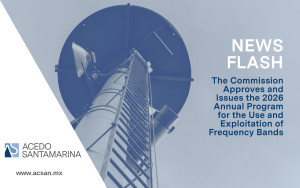
Despite the adverse economic effects generated by the COVID-19 pandemic in Mexico and the world, private equity funds in our country have shown a high level of resilience and potential to continue raising capital and investing, as evidenced by the figures reported by AMEXCAP (Mexican Private Equity Association) in its latest report “Panorama of the Private Equity Industry in Mexico”, published in December 2021. According to said report, the accumulated committed capital of the private equity industry at the close of the first half of 2021 amounted to USD $63.8 billion; meanwhile, at the close of 2020, more than USD $5.3 billion had been invested (second best year since 2015); an amount that may be surpassed once the figures at the close of 2021 are obtained, since the amount of capital invested during the first half of 2021 was only 20% less than the total amount invested during 2020.
Considering the above, it is important for entrepreneurs seeking to attract private equity funds or “angel investors” to be familiar with the various legal instruments that will facilitate negotiations with such investors. In this first article, we will focus on the first stage of private equity investment, the so-called “seed capital” investment, and one of the instruments most commonly used during this stage, the ABACO (Basic Agreement to Purchase Shares).
What is seed capital?
Seed capital is the financing sought by entrepreneurs during the early stages of the business, in order to cement and develop it, by offering an equity stake to investors who are usually called FFF (Friends, family and fools), or also to “angel investors” and certain private equity funds, who also usually provide specialized advice to define the business plans and promote the growth of the business. Seed capital is seen as an alternative to traditional financing mechanisms by banking institutions or other financial market participants, and is given as a stage prior to a round of investment by venture capital or venture capital funds, which represent significantly larger amounts.
What is ABACO?
The ABACO is an instrument commonly used to document a seed capital investment. ABACO derives from the instrument called SAFE (Simple Agreement for Future Equity), which was created in 2013 by Silicon Valley funds and is still in place and used in a large part of seed capital transactions in the United States of America.
Through the ABACO, the investor will fund the promoted company through a contribution for future capital increases, which may be: (i) capitalized once the conversion scenarios to which the ABACO is subject have been verified, at which time the investor will receive the corresponding shares according to the valuation to be established at the time of conversion, or (ii) repaid to the investor in the event of an exit strategy or the dissolution of the promoted company, as described below.
In this regard, it should be clarified that although the ABACO is an instrument that may be convertible into shares, it should not be confused with other instruments such as convertible notes or credits, in which the investor could also receive an equity interest in the event of a conversion event; however, these are debt instruments, so the financing is subject to an interest rate and maturity dates, which is not the case with the ABACO, since it is not a debt instrument but an equity instrument, at least from a legal and contractual point of view.
The ABACO is widely used in seed capital investments since it extends the valuation of the promoted company (price per share) until the next investment round, which makes the negotiation of an ABACO considerably more agile and the valuation of the shares, once the moment of conversion has arrived, fairer for both the entrepreneur and the investor.
ABACO structure and legal considerations
The ABACO is intended to be a simple instrument in terms of its structure and clauses, so it usually focuses on establishing the following:
a) Conversion Scenario. This is a qualified financing, i.e., a subsequent round of investment with the objective of raising capital from qualified investors.
In such a scenario the amount invested through the ABACO is capitalized and the promoted company issues shares in favor of the investor at a conversion price that will usually be equal to the lowest price per share paid by the investor(s) of the next round. In this respect, the ABACO investor can negotiate a discount on the conversion price, as well as a cap on the company’s valuation, which are benefits granted to the ABACO investor for having taken a higher risk by investing at an earlier stage of the business.
On the other hand, the shares received by the “ABACO investor” are usually preferred shares with corporate and economic rights similar to the shares to be received by investors in the subsequent round.
b) Liquidity Events. These may include a change of control, the substantial sale of the promoted company’s assets, a merger, an IPO (Initial Public Offering), among others.
Such liquidity events constitute exit strategies for the investor, and usually result in the repayment of the amount invested in accordance with the ABACO (however, they may also result in the conversion to shares) such repayment will be calculated following the formulas determined in the ABACO. In this sense, as mentioned above, the ABACO is not characterized as a debt instrument from a legal and contractual point of view, so that the amount invested by the investor will not generate interest in its favor, which is why it is important that the formulas for repayment to the investor be carefully negotiated by the investor in order to ensure a profit.
c) Dissolution and Liquidation. In the event that the promoted company decides to dissolve and liquidate, then the investor will be entitled to receive repayment of the amount invested. In this sense, the ABACO must include the investor’s priority over the rest of the shareholders of the promoted company.
d) Other considerations. A standard ABACO also usually includes a right of first refusal in favor of the investor to participate in subsequent investment rounds, as well as obligations to be performed by the promoted company (such as the issuance of the corresponding treasury shares to be subscribed and paid upon conversion of the ABACO).
Tax considerations
As we have analyzed throughout this article, the ABACO does not have the nature of a debt instrument for legal and contractual purposes, and is intended to be recorded in the accounts of the promoted company as a contribution for future capital increases, for which, from a financial and accounting point of view, the requirements established in the Financial Reporting Standards (including NIF C-11 “Stockholders’ Equity” and NIF-C12 “Financial Instruments with Characteristics of Equity and Liabilities”) must be complied with. Notwithstanding the foregoing, for tax purposes, Article 46 of the Mexican Income Tax Law establishes that for purposes of the annual inflation adjustment to be made by corporations, contributions for future capital increases are considered a “debt” or “liability”.
Considering the above, once the conversion of the ABACO and the consequent capitalization of the invested amount is carried out, the tax obligations regarding the capitalization of liabilities must be complied with, including the obligation of the promoted company to keep the minutes of the meeting in which the capitalization is recorded, (which we suggest be notarized in order to have a date certain) as well as to obtain a certification by a certified public accountant regarding the existence of the liability and the corresponding value thereof, in accordance with Article 30 of the Federal Tax Code, and the other requirements established by rule 2. 8.1.19 of the Miscellaneous Tax Resolution for 2022.
In conclusion, the ABACO is a highly recommendable instrument for entrepreneurs seeking to raise seed capital, since it can be negotiated in an agile manner with investors and promotes a fair valuation of the company by extending it at the time of the subsequent round of investment. However, it is important that both entrepreneurs and investors are properly advised by legal and tax specialists when negotiating these instruments; the lawyers of Acedo Santamarina’s corporate and tax law practices have the necessary experience to advise both entrepreneurs and investors in this and all types of private equity transactions.
Eduardo Montenegro
Associate





